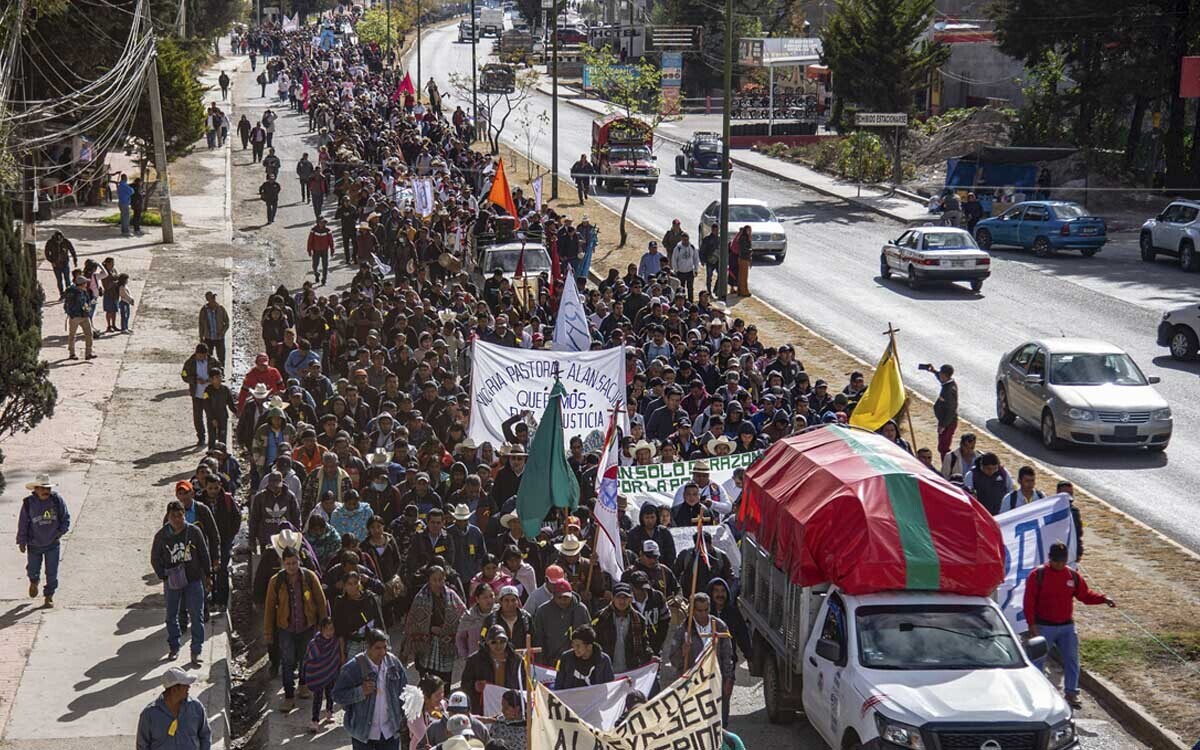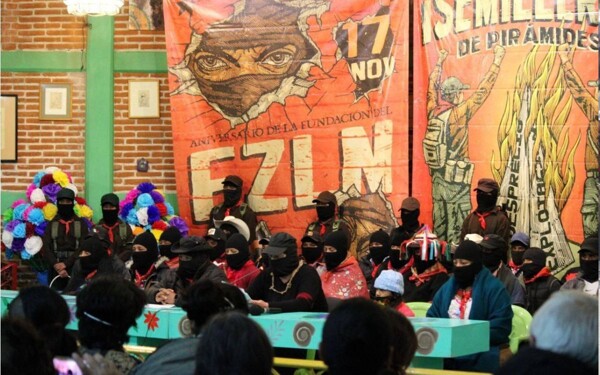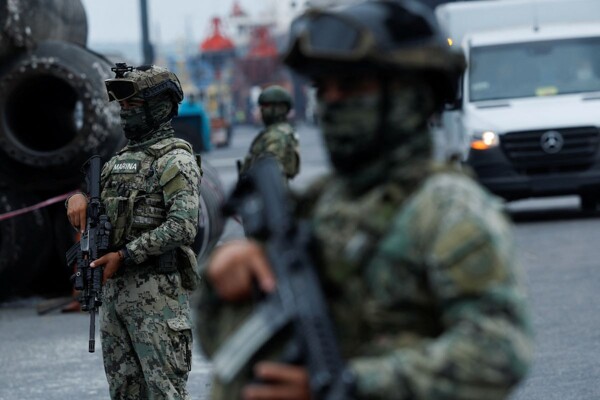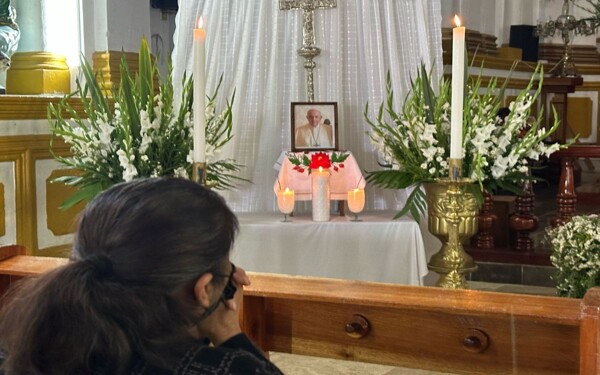
About 7,000 indigenous people, along with civil and religious organizations, marched on Saturday in San Cristóbal de Las Casas, Chiapas, demanding justice in light of the insecurity and violence crisis in the state and the country. Petra López, spokesperson for the organization Pueblo Creyente, stated: “May the right to a dignified life be fulfilled with justice and freedom, in the face of so much marginalization, injustice, and impunity happening in our state of Chiapas, giving true attention to the suffering people and not just simulating solutions to the problems.”
The protesters, mostly indigenous people from various ethnic groups, rejected the institutional version that the problems in the state are “of a social nature.” The march was called by the Catholic organization Pueblo Creyente and the Diocese of San Cristóbal, along with organizations defending indigenous and environmental human rights, and it started from the west and south of the city toward the cathedral, where a prayer vigil was held.
During the demonstration, participants carried banners and placards with various slogans, such as “Total Rejection of the Interior Security Law,” calling for justice, disarmament, and dismantling of organized crime, as well as truth and punishment for those who commit murders. They urged the government of Mexico, led by Claudia Sheinbaum, to define its position: “Are you with the people or are you with crime?” they questioned.
At the end of the march, a statement was read demanding the clarification of violent events, public acknowledgment of the victims of forced displacement, and justice for the murder of priest Marcelo Pérez, which occurred on October 20, 2024. Auxiliary Bishop Luis Manuel López Alfaro and the Apostolic Nuncio in Mexico, Monsignor Joseph Spiteri, emphasized the need to rebuild peace with the participation of all parties involved.
In a context of violence with murders, disappearances, and criminal groups in various municipalities of Chiapas, it is estimated that around 20,000 people have been forcibly displaced from about 30 indigenous municipalities due to violence generated by armed groups. Activists and organizations have warned of a climate of “civil war” in the state, arising from armed conflicts, the presence of organized crime groups and drug cartels, which have led to homicides, disappearances, and forced displacements, especially in indigenous communities and those related to the EZLN.














